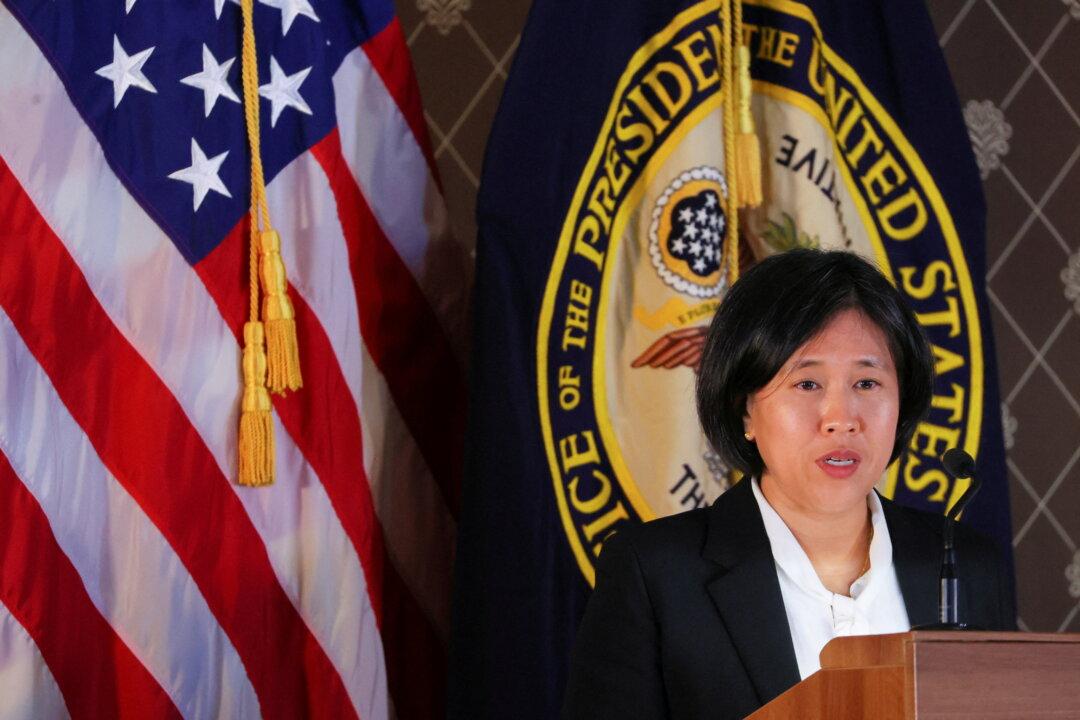A group of senators from the Senate Finance Committee have warned that the withdrawal of the U.S. Trade Representative’s (USTR’s) demands for a level playing field in digital trade at the World Trade Organization (WTO) could “cede U.S. digital leadership to China” and bolster the Chinese Communist Party’s internet censorship and surveillance.
In response to the decision “to end U.S. support for combatting China’s predatory practices in international digital trade negotiations,” Sens. Mike Crapo (R-Idaho), Chuck Grassley (R-Iowa), John Cornyn (R-Texas), Tim Scott (R-S.C.), Steve Daines (R-Mont.), John Barrasso (R-Wyo.), Thom Tillis (R-N.C.), and Marsha Blackburn (R-Tenn.) said: “We have warned for years that either the United States would write the rules for digital trade or China would. Now, the Biden administration has decided to give China the pen.”





